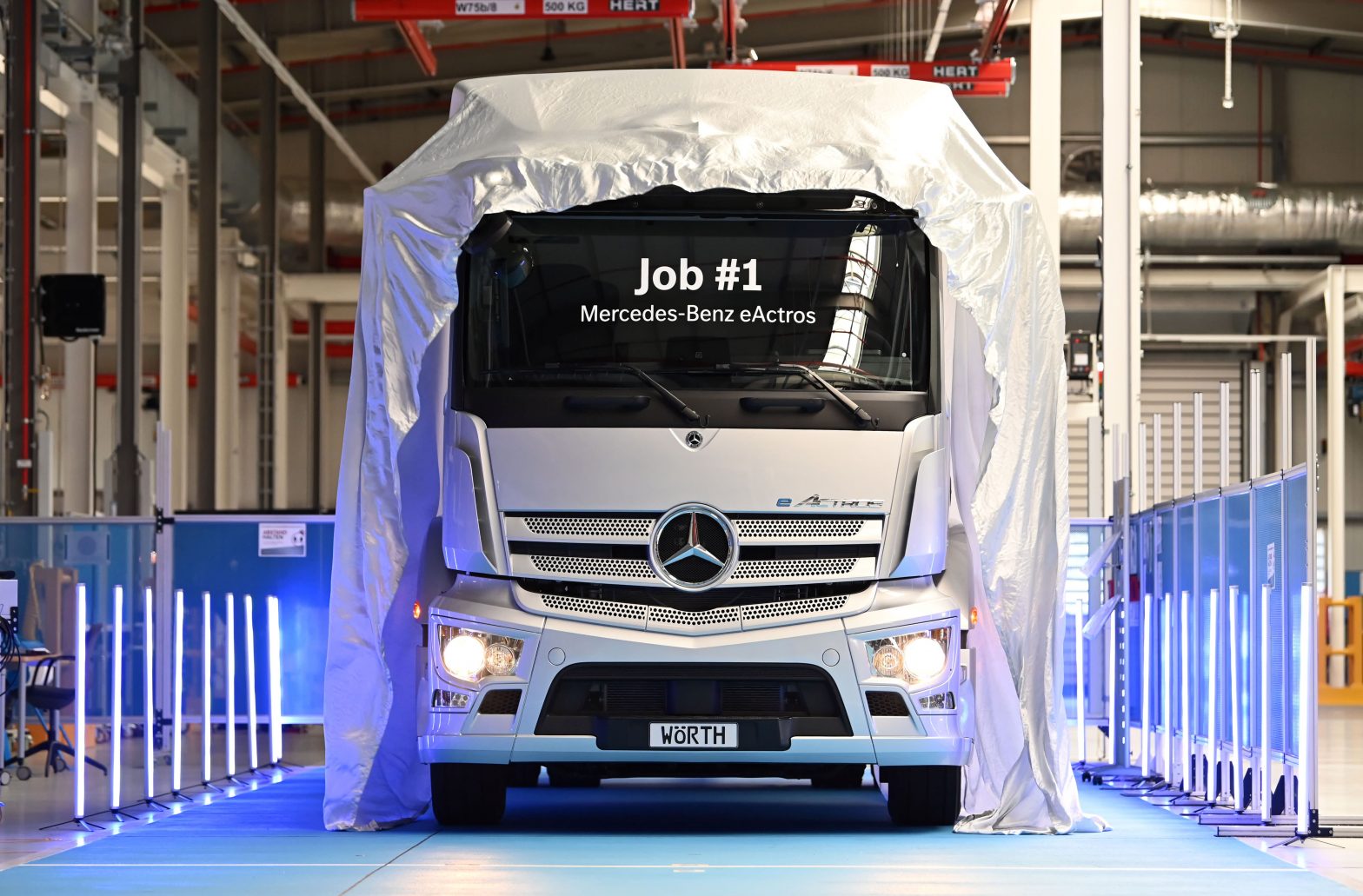An eActros is unveiled at the Mercedes-Benz truck plant of Daimler Truck AG on Ocotber 7, 2021.
Uli Deck | picture alliance | Getty Images
Daimler Truck, a spin-off from the main parent firm Daimler, began trading on the Frankfurt stock exchange on Friday.
Shares of the truck firm opened at 28 euros, and gradually rose to 29.88 euros by mid-morning. The debut is considered to be a market listing rather than a full initial public offering. Daimler Truck is one of the world’s largest commercial vehicle manufacturers and has more than 100,000 employees and 40 production sites.
Speaking to CNBC’s Annette Weisbach on Friday morning, CEO Martin Daum said the spin-off gave his firm “more focus, more visibility.”
He spoke about the cost of electric vehicles and how this may directly affect the consumer.
“There are many factors and the price of a new truck is not necessarily the … only one,” he said. “The biggest one is the ‘juice’ you need to power the truck.”
Daum argued there was a big question related to how diesel would develop over time. “We are talking, here, timeframes [of] 2030, 2040. What is the price for CO2? Do we have a CO2 based toll system where a zero emission truck gets relief on the toll side compared to someone who’s burning diesel.”
“So I think there will be a way that it’s cheaper ultimately for the customer — TCO parity, we call that — to run a zero-emission truck. I’m not worried about that at all.” TCO is a term which refers to total cost of ownership.
Chip challenges
Autos giant Daimler, which has a 35% interest in the newly spun off Daimler Truck, slipped around 14% in early deals Friday but soon recovered losses to trade higher.
“It is a very important day for us today, sending off these two strong industrial players into their individual futures,” Daimler CEO Ola Kallenius told CNBC.
Kallenius also touched upon the shortage of semiconductors affecting the automotive industry.
“We have managed to stabilize some of those semiconductor supply chains in quarter four compared to quarter three, which was very heavily impacted by Covid-related issues,” he said.
“The big chipmakers say that there will still be restrictions in 2022, so it’s something that we will continue to work with our partners and suppliers to gradually improve.”
Kallenius’ comments come at a time when major economies around the world are attempting to reduce the environmental footprint of road based transportation.
Today, much of the discussion around low and zero emission mobility is centered around the debate between battery electric and hydrogen fuel cell vehicles.
On this topic, the Daimler chief sought to draw a distinction between trucks and cars. “For long haul trucking — where trucks go up to 1,000 kilometers a day, maybe they have to hold 40 tons — it makes a whole lot of sense to look at the hydrogen technology because of the energy density of such a drive train.”
“We don’t have any plans on the passenger car sides at this point,” he said. “Here, we’re going for full battery electrification.”
The International Energy Agency’s Global EV Outlook for 2021 has described long-haul trucking as needing “advanced technologies for high power charging and/or large batteries.”
Daimler Truck’s focus on zero-emission technology will put it in competition with companies like Tesla and Geely, which are also developing electric trucks.
